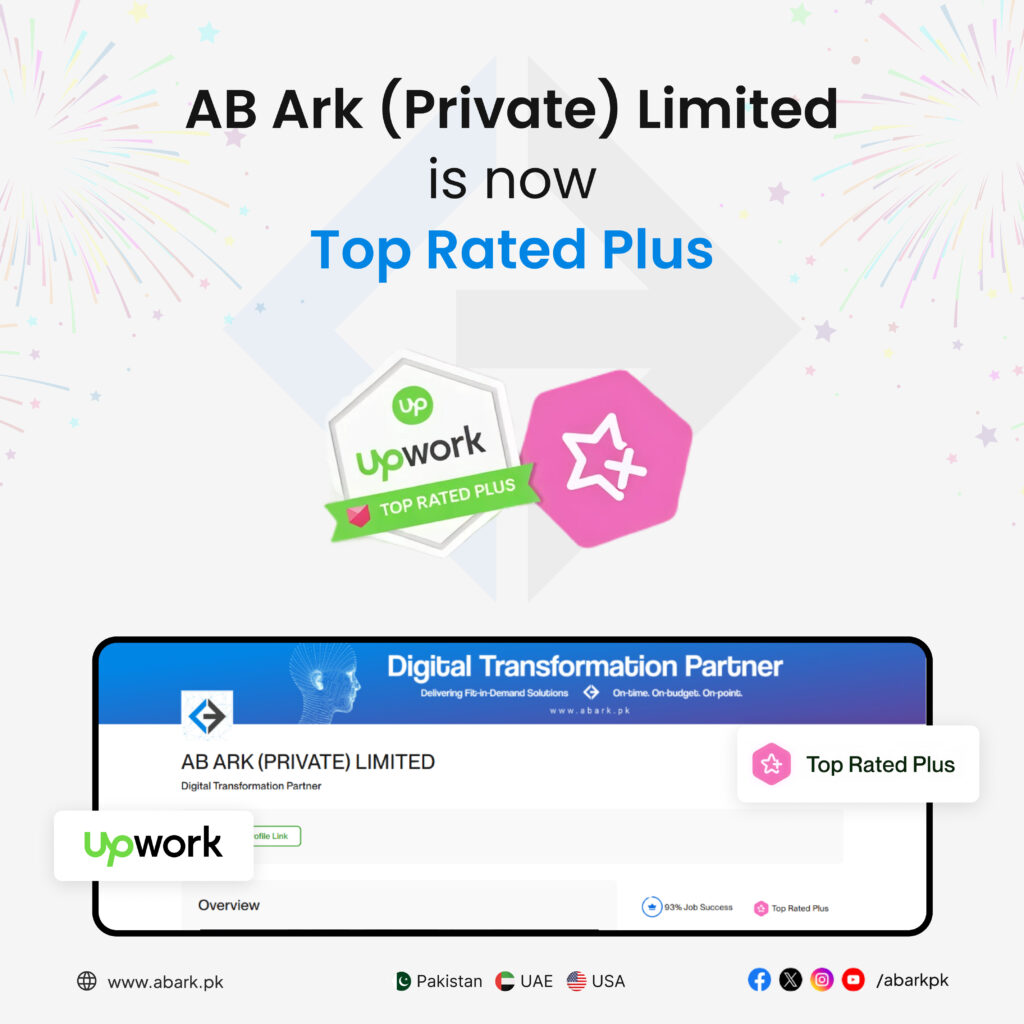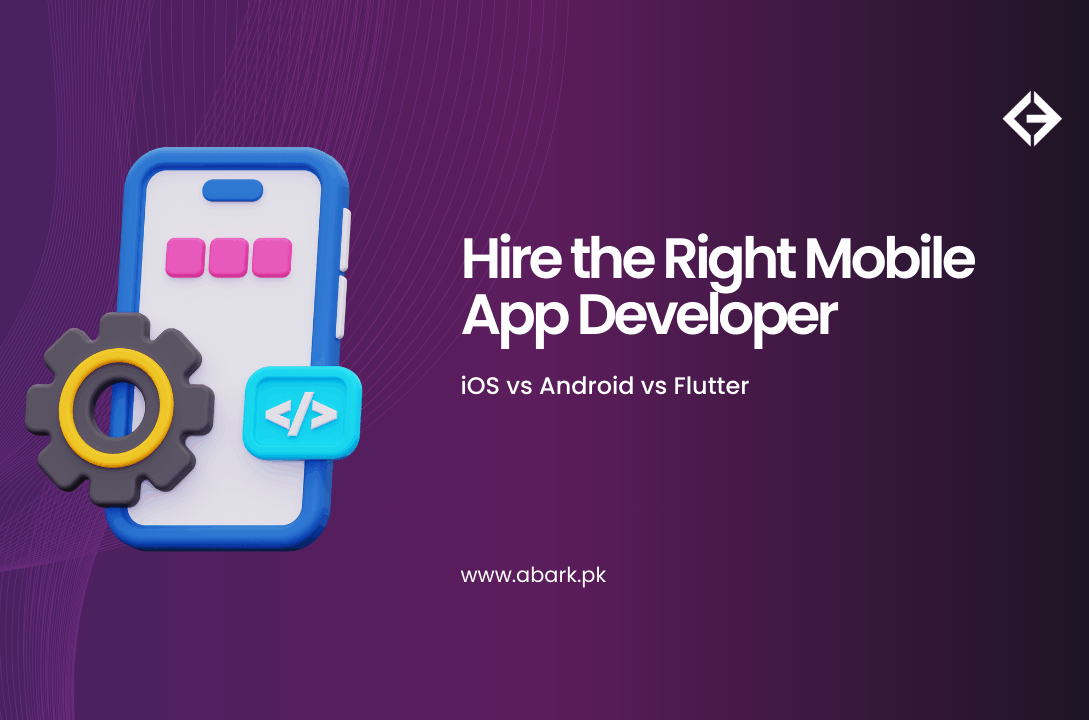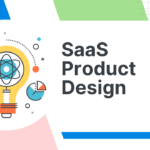You’re building the next big app. The idea? Groundbreaking. The potential? Sky-high. But then comes the critical question: “Who’s going to build it?”—and just like that, you’re spiraling down the rabbit hole of hiring decisions.
Should you hire an iOS developer? Maybe Android is where your audience lives. Or should you go cross-platform with Flutter?
The choices are overwhelming. Make the wrong hire, and you risk delays, bugs, spiraling budgets, and missed opportunities. Make the right choice, and you’re on the path to a powerful, scalable, and successful app.
In this article, we break down everything you need to know to hire the right mobile app developer, whether you’re building for iOS, Android, or using Flutter for cross-platform development. Let’s simplify the complex, so you can hire with confidence.
iOS App Development: Pros, Cons, and Ideal Use Cases
Apple’s iOS platform is known for high performance, seamless integration with the Apple ecosystem, and a loyal user base.
Pros:
- Optimized performance and better device compatibility.
- Higher revenue potential per user.
- Secure, stable environment.
Cons:
- App Store approval can be strict and time-consuming.
- Limited customization compared to Android.
Ideal Use Cases:
- Targeting premium users or developed markets (especially the U.S. and Europe).
- Apps requiring strong privacy and security.
- Monetization through in-app purchases and subscriptions.
Stat: iOS users spend more than double on apps than Android users (Source: Statista).
Android App Development: Advantages, Challenges, and Best Scenarios
With over 70% of the global market share, Android offers access to a wide, diverse audience.
Pros:
- Broader market reach, especially in emerging economies.
- Easier app publishing process.
- Greater flexibility in app features and design.
Cons:
- Device fragmentation challenges.
- Security vulnerabilities due to open-source nature.
Ideal Use Cases:
- Ad-driven apps or free-to-use models.
- Apps targeting developing markets.
- Businesses needing broader device support.
Flutter App Development: Cross-Platform Efficiency and Considerations
Developed by Google, Flutter enables you to build for iOS and Android from a single codebase using the Dart programming language.
Pros:
- Faster development & maintenance cycles.
- Native-like performance and UI.
- Cost-effective for MVPs and startups.
Cons:
- App size tends to be larger.
- Some native features might require plugins or native code.
Ideal Use Cases:
- MVPs and startups validating their idea.
- Apps with uniform UIs and moderate complexity.
- Projects with tight budgets and timelines.
iOS vs. Android vs. Flutter: A Comparative Overview
| Feature | iOS | Android | Flutter |
| Performance | Excellent | Great | Very Good |
| Development Time | Moderate | Moderate | Fast (Single codebase) |
| Cost | Higher | Moderate | Lower |
| Device Reach | Limited (Apple) | Extensive | Cross-platform |
| App Store Approval | Strict | Flexible | Follows platform rules |
Defining Your App Requirements and Goals
Before you hire an app developer, get crystal clear on:
- Your target audience (iOS, Android, or both?)
- Revenue model (ads, in-app purchases, paid app?)
- Key features (camera access, GPS, AI, etc.)
- Desired launch timeline
This will shape your decision on platform and developer type.
Key Skills to Look for in App Developers
iOS Developers:
- Swift / Objective-C
- Xcode & Interface Builder
- iOS Human Interface Guidelines
Android Developers:
- Java / Kotlin
- Android Studio
- Material Design principles
Flutter Developers:
- Dart programming
- Flutter SDK and Widgets
- Experience integrating platform channels for native features
Soft Skills:
- Communication and collaboration
- Problem-solving mindset
- Agile development experience
Where to Find and Hire App Developers
Freelance Platforms:
Development Agencies:
Communities & Networks:
Evaluating and Interviewing Potential Developers
Here’s how to hire the right app developer with confidence:
- Portfolio Review: Look for apps similar to your idea.
- Tech Test: Assign a small task.
- Communication Test: Can they explain complex ideas clearly?
- References: Ask about deadlines, quality, and collaboration.
Pro Tip: Check how well they follow App Store or Google Play best practices.
Cost Considerations and Budgeting
- iOS developers typically charge $40–$150/hr.
- Android developers range between $35–$130/hr.
- Flutter developers fall around $30–$120/hr.
Rates vary based on location, experience, and scope of work.
Consider post-launch expenses like:
- Regular updates
- Maintenance
- Marketing and analytics
FAQs: People Also Ask
Q1: What’s the difference between native and cross-platform app development?
Native apps are built for a specific OS (iOS or Android), offering better performance. Cross-platform apps like those built with Flutter use one codebase to run on both platforms.
Q2: How long does it take to develop an app?
Depending on complexity, it can take 2–6 months for an MVP and longer for feature-rich apps.
Q3: Can I switch platforms later?
It’s possible but costly. Flutter offers a more flexible approach if you need to support both platforms.
Q4: How do I ensure my app idea is protected? Use NDAs and IP contracts. Work with vetted developers or trusted agencies.
Make the Smart Hire
Choosing between iOS, Android, or Flutter ultimately depends on your business goals, timeline, and budget.
Hiring the right app developer isn’t just about code — it’s about collaboration, innovation, and bringing your vision to life.
✅ Hire the Right Mobile App Developer from AB Ark
Whether you need a dedicated iOS developer, an expert in Android, or a team skilled in Flutter development, AB Ark has the top-rated talent you need.

✔️ Top Rated Plus on Upwork
✔️ Transparent Processes
✔️ On-time Delivery
✔️ Cutting-Edge Solutions
Hire the Right App Developer from AB Ark Today







